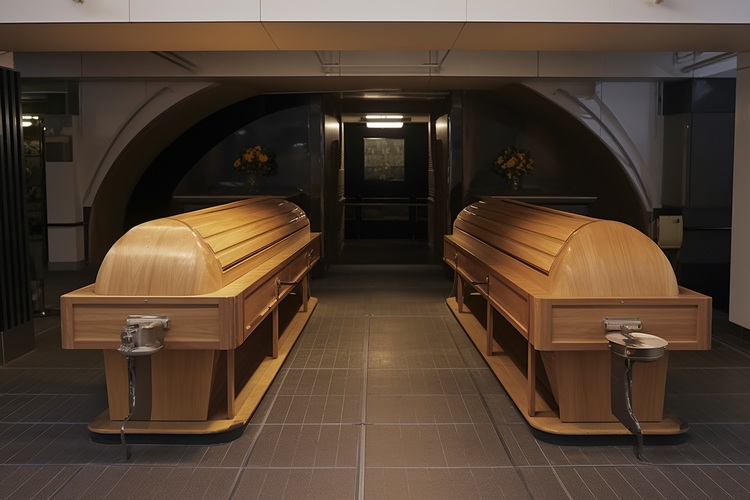A Comprehensive Guide to Understanding Funeral Costs: From Traditional to Musician Funerals
Planning a funeral involves numerous financial considerations that can vary significantly depending on the type of service chosen. Understanding the various cost components helps families make informed decisions during difficult times while honoring their loved ones appropriately. From traditional burial services to specialized musician funerals, each option comes with distinct expenses that require careful consideration and budgeting.

Funeral expenses represent one of the significant costs families face during bereavement. In Singapore, the funeral industry offers various service levels and options, each with distinct pricing structures. Understanding these costs helps families plan appropriately and make decisions that honor their loved ones while managing financial considerations.
What Are the Different Funeral Cost Categories?
Funeral expenses typically fall into several distinct categories. Professional service fees cover the funeral director’s coordination, administrative work, and staff assistance. Facility charges include the use of chapels, viewing rooms, and ceremonial spaces. Transportation costs encompass hearse services and vehicle arrangements for family members. Merchandise expenses involve caskets, urns, memorial stationery, and floral arrangements. Additional services may include embalming, cosmetic preparation, and documentation processing. Each category contributes to the overall expense, and families can often customize their selections based on preferences and budget constraints.
How Do Traditional Funeral Expenses Break Down?
Traditional funeral services in Singapore generally include several core components. The funeral director’s professional fees typically form the foundation, covering planning, coordination, and execution of services. Casket selection represents a substantial portion of costs, with options ranging from simple wooden designs to elaborate materials. Embalming and body preparation services ensure proper presentation during viewing periods. Venue rental for wake services, whether at void decks, funeral parlors, or private locations, adds to expenses. Religious or cultural officiants may charge separate fees for conducting ceremonies. Transportation arrangements for the deceased and mourners require additional budgeting. Documentation, including death certificates and permits, involves administrative costs that vary by requirements.
What Are Typical Costs Associated with Traditional Funerals?
Funeral costs in Singapore vary significantly based on religious customs, service complexity, and personal preferences. Buddhist and Taoist funerals often involve multi-day wake periods with specific rituals, while Christian services may be simpler in structure. Muslim burials follow Islamic guidelines with distinct requirements. The choice between burial and cremation substantially impacts overall expenses, as burial plots in Singapore command premium prices due to land scarcity.
| Service Type | Provider Category | Cost Estimation |
|---|---|---|
| Basic Funeral Package | Local Funeral Homes | SGD 3,000 - 6,000 |
| Standard Traditional Service | Mid-Range Providers | SGD 8,000 - 15,000 |
| Premium Funeral Service | Full-Service Directors | SGD 20,000 - 40,000+ |
| Cremation Service | Crematorium Facilities | SGD 200 - 500 |
| Burial Plot | Government/Private Cemeteries | SGD 2,000 - 20,000+ |
| Columbarium Niche | Memorial Parks | SGD 3,000 - 15,000 |
Prices, rates, or cost estimates mentioned in this article are based on the latest available information but may change over time. Independent research is advised before making financial decisions.
How Are Funeral Expenses Structured and What Influences Final Costs?
Several factors influence the final cost of funeral arrangements. Religious and cultural requirements often dictate specific rituals, materials, and timeframes that affect pricing. The duration of wake services impacts venue rental and staffing costs. Casket materials range from economical options to premium hardwoods and metals. Embalming becomes necessary for extended viewing periods or international repatriation. Location choices matter significantly, as funeral parlors in central areas typically charge more than suburban alternatives. The number of attendees influences catering, seating, and space requirements. Customization elements such as video tributes, printed materials, and memorial keepsakes add incremental costs. Timing can also play a role, as services during peak periods or auspicious dates may carry premium charges. Families should request itemized quotations from multiple providers to compare offerings transparently.
Government subsidies and assistance programs exist for lower-income families in Singapore. The Ministry of Social and Family Development provides funeral assistance for eligible individuals, helping to offset basic expenses. Community organizations and religious institutions may offer support or reduced-rate services for members. Pre-planning and pre-payment options allow individuals to lock in current prices and reduce the burden on surviving family members. Insurance policies specifically designed for funeral expenses provide another financial planning tool. Understanding available resources helps families access appropriate support during difficult times.
Transparency in funeral pricing has improved in recent years, with industry associations encouraging clear disclosure of costs. Families should feel empowered to ask detailed questions about what services include and what constitutes additional charges. Comparing packages from different providers reveals significant price variations for similar services. Some funeral directors offer modular pricing, allowing families to select only needed services rather than comprehensive packages. This flexibility can result in substantial savings while still providing dignified arrangements.
Environmental considerations are increasingly influencing funeral choices. Eco-friendly caskets made from biodegradable materials offer alternatives to traditional options. Green burial practices minimize environmental impact, though availability in land-scarce Singapore remains limited. Cremation, while common locally, carries its own environmental footprint that some families now consider. These alternative approaches may affect overall costs differently than conventional methods.
Planning Ahead for Funeral Expenses
Advance planning provides numerous benefits beyond cost management. Documenting preferences ensures that personal wishes are respected and reduces decision-making pressure on grieving family members. Pre-arranging services allows time for thoughtful consideration rather than rushed choices during emotional distress. Comparing providers becomes easier when not constrained by immediate need. Financial arrangements can be structured gradually, spreading costs over time rather than requiring lump-sum payments. Communication with family members about plans prevents misunderstandings and ensures everyone understands the arrangements. Regular review of pre-planned arrangements ensures they remain current with changing circumstances and preferences.
Funeral costs represent a significant financial consideration that varies widely based on individual choices and circumstances. Understanding the components, comparing providers, and planning ahead can help families navigate this challenging aspect of end-of-life arrangements with greater confidence and financial clarity.




